
Find Help
More Items From Ergsy search
-

Is there a library service in the prison?
Relevance: 100%
-

How are health services provided in prison?
Relevance: 50%
-
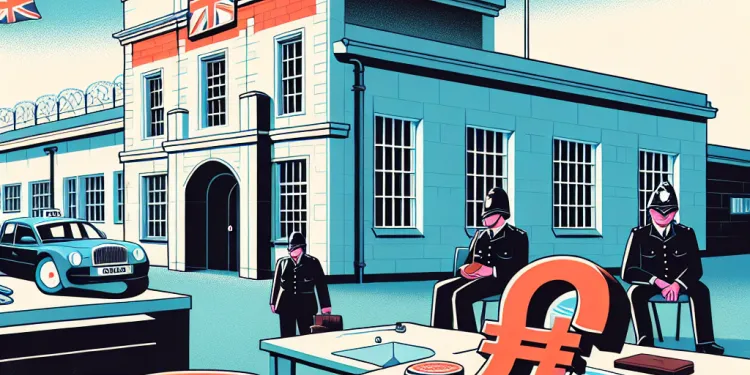
What to expect on the first day in a British prison.
Relevance: 46%
-

Do prisoners with indefinite sentences have the same privileges as others?
Relevance: 40%
-
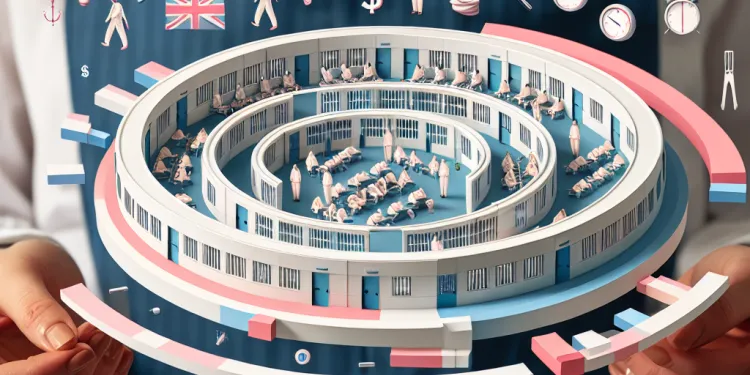
What are women's prisons like in the UK?
Relevance: 37%
-
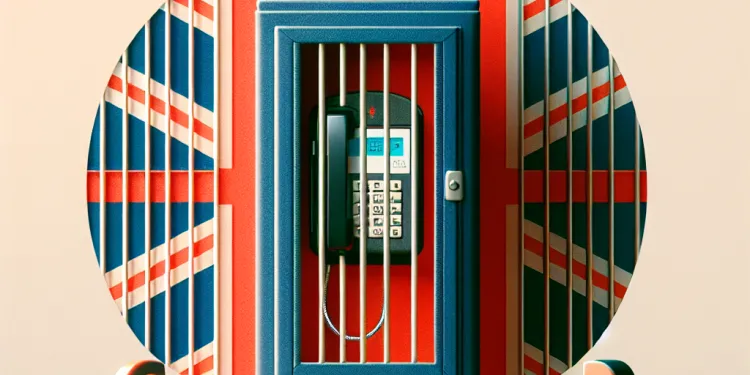
Are phone calls from prison free?
Relevance: 37%
-

What role do libraries play in helping older adults find hobbies?
Relevance: 36%
-

Will I meet with a prison officer?
Relevance: 36%
-

Someone I know has been sent to prison.
Relevance: 36%
-
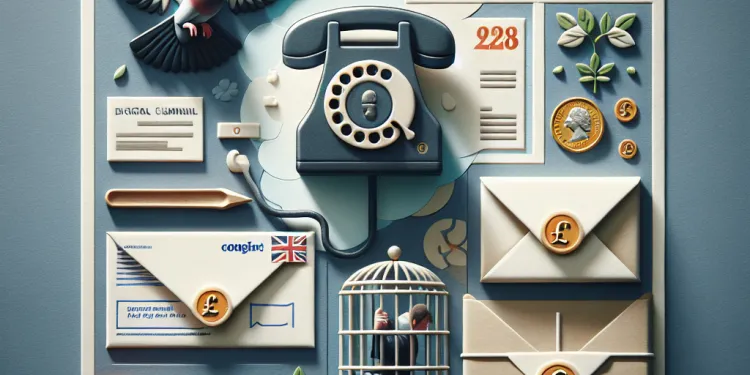
How can I contact someone in prison?
Relevance: 36%
-
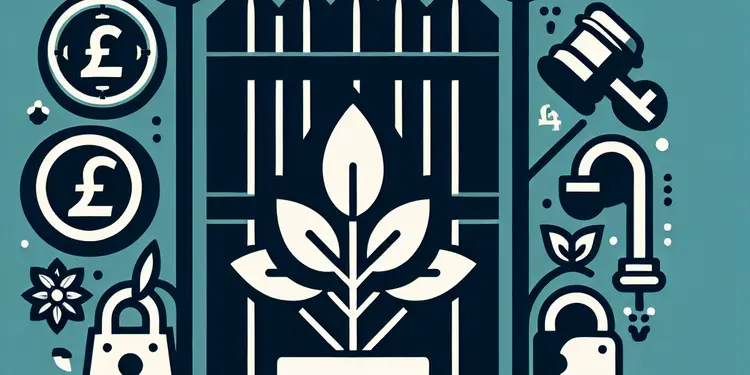
Are there alternatives to indefinite prison sentences?
Relevance: 36%
-

Are there special programs for prisoners with indefinite sentences?
Relevance: 35%
-
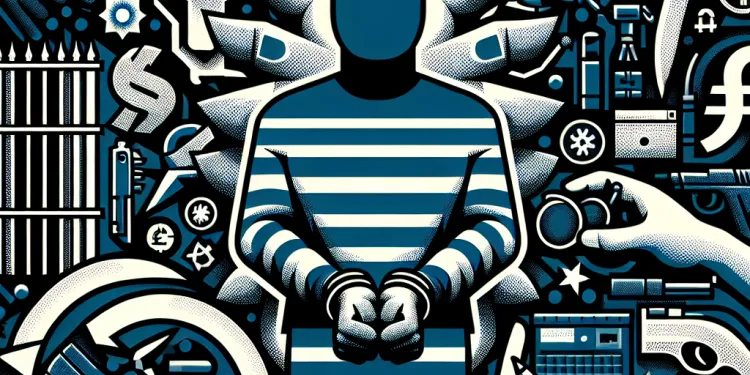
Do I get issued with prison clothing?
Relevance: 35%
-

Visiting a Prisoner - What To Wear on a prison visit
Relevance: 34%
-
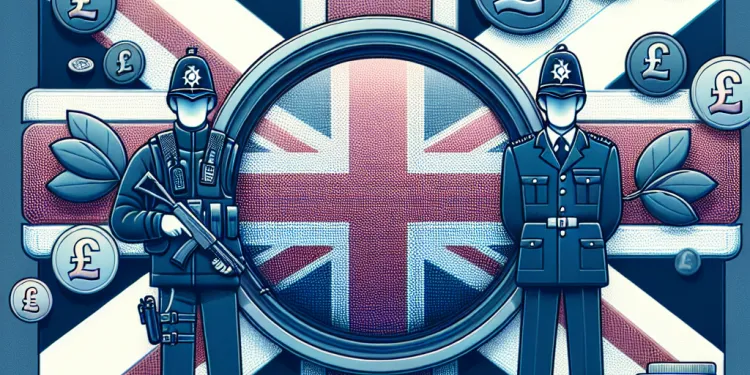
How often can I visit someone in prison?
Relevance: 33%
-

What is an indefinite prison sentence?
Relevance: 33%
-

What is an indefinite prison sentence?
Relevance: 33%
-

Is rehabilitation considered in indefinite prison sentences?
Relevance: 31%
-

What items can I send to someone in prison?
Relevance: 31%
-

Are indefinite prison sentences given in all countries?
Relevance: 31%
-

Why do courts issue indefinite prison sentences?
Relevance: 31%
-
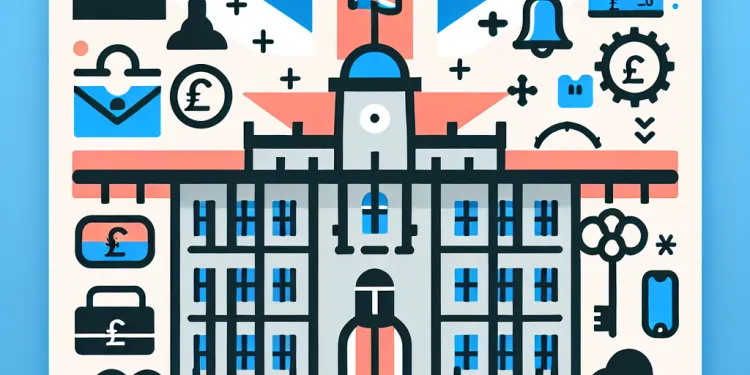
What should I expect when visiting a prison?
Relevance: 30%
-

How does parole work with indefinite prison sentences?
Relevance: 30%
-

How frequently are prisoners with indefinite sentences reviewed for possible release?
Relevance: 30%
-

Can an indefinite prison sentence be appealed?
Relevance: 30%
-

Who decides when a person with an indefinite prison sentence is released?
Relevance: 27%
-

Can I visit them in prison?
Relevance: 26%
-
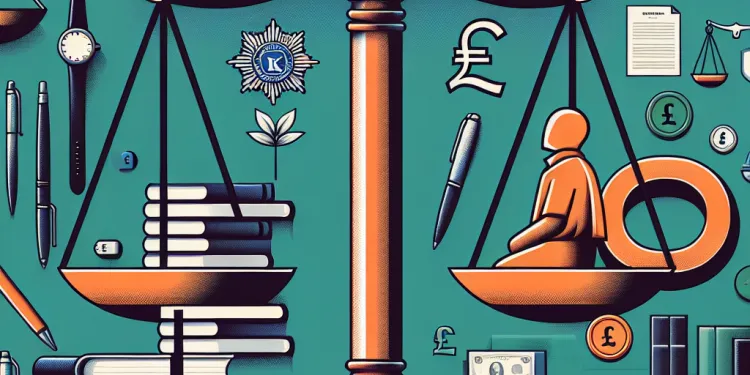
Can inmates access legal assistance?
Relevance: 26%
-

How does an indefinite prison sentence differ from a life sentence?
Relevance: 25%
-
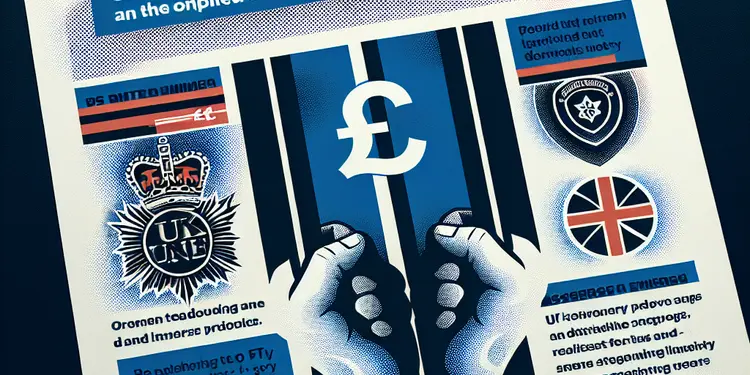
What are some examples of crimes that might result in an indefinite prison sentence?
Relevance: 24%
-

How can I advocate for an inmate's needs?
Relevance: 22%
-

Do I need a TV license if I only watch streaming services like Netflix?
Relevance: 20%
-

Do I have to do Jury Service?
Relevance: 20%
-

How do I find out where they are incarcerated?
Relevance: 19%
-
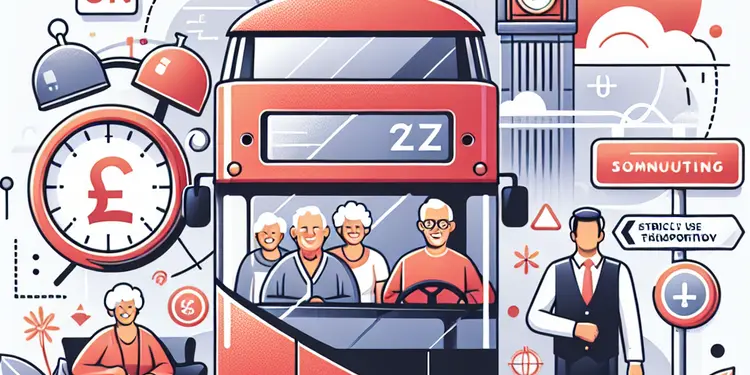
Are there transportation services available for seniors?
Relevance: 19%
-

How do I organise the order of service?
Relevance: 19%
-
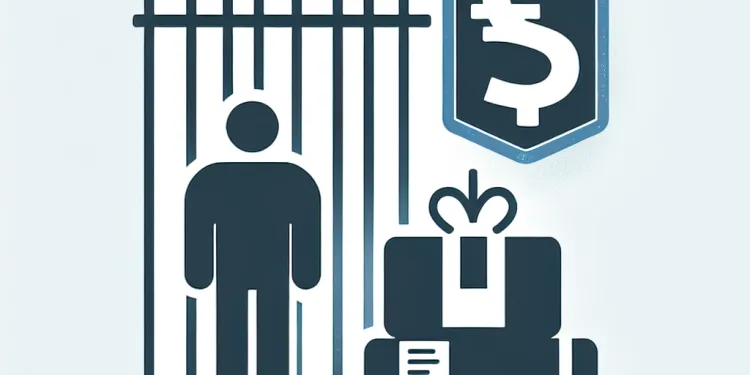
Can inmates receive packages?
Relevance: 19%
-
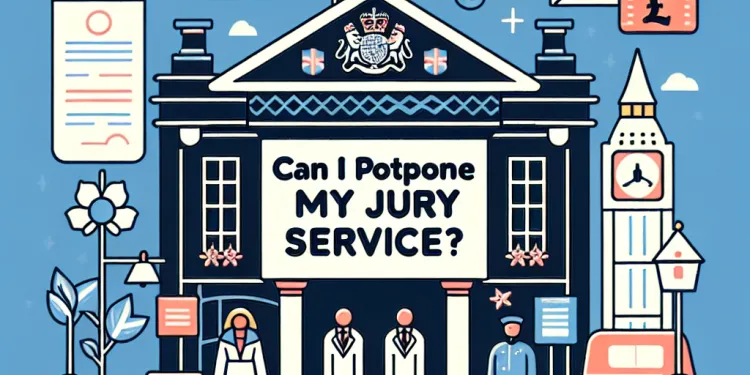
Can I postpone my jury service?
Relevance: 18%
-

Mental Health Support Services in the UK
Relevance: 18%
-

Can I volunteer for jury service?
Relevance: 18%
Introduction
In the UK, libraries serve as vital educational and rehabilitative resources within the prison system. Access to a library service is considered an essential component of prison life, aiming to support inmates in their personal development and reintegration into society after release. This service provides not only books but also educational materials and access to various information resources which are crucial for self-improvement and rehabilitation.
The Role of Libraries in Prisons
Libraries in prisons play a multifaceted role. They offer a quiet space for prisoners to read, study, and reflect, which can be therapeutic and help reduce stress and anxiety. Access to books and educational resources supports prisoners in pursuing further education or vocational qualifications, which are often facilitated by the prison education department. Additionally, libraries help to promote literacy and a lifelong love of reading, which are beneficial skills both inside and outside the prison environment.
Services Provided
The range of services provided by prison libraries can vary significantly depending on the facility. Typical services include lending books and periodicals, providing access to legal information and resources, and offering digital resources where technology permits. Many libraries also organize reading groups, book clubs, and educational workshops that encourage discussion and intellectual engagement. In some prisons, collaboration with public libraries and charitable organizations helps enhance the resources and services offered in the prison library setting.
Challenges Faced
Despite their importance, prison library services face several challenges. These include budget constraints, which can limit the range of materials available, and space restrictions within the prison environment. Staffing can also be a challenge; while some prisons employ professional librarians, others rely on volunteers or trained inmates to manage the library. In addition, access to libraries can be affected by the security regime or logistical issues within the prison, impacting how often and how easily prisoners can use the facilities.
Impact on Rehabilitation
The impact of library services in prisons on rehabilitation is significant. Studies have shown that education and access to learning materials can reduce recidivism rates by providing inmates with skills and knowledge that improve their employment prospects upon release. Libraries support this process by fostering a culture of learning and personal growth, which is crucial for successful reintegration into society. Furthermore, library access helps to maintain and increase family ties, as prisoners can access resources for family literacy and relationships.
Conclusion
Prison libraries in the UK play a crucial role in supporting the rehabilitation and education of inmates. Despite facing various challenges, these libraries provide valuable resources and services that contribute to personal and professional development. As a key part of the prison education system, these library services help prepare inmates for a successful return to the community, thereby promoting a safer society for all.
Introduction
In the UK, libraries are important in prisons. They help with learning and getting ready for life after prison. Libraries give prisoners books and other things to help them learn and grow. This is very important for their personal growth and to get back into society after they leave prison.
The Role of Libraries in Prisons
Prison libraries are important for many reasons. They provide a quiet place for reading and thinking, which helps prisoners feel better. Books and learning materials help prisoners study and earn job skills. Libraries teach prisoners to love reading, which is good for them inside and outside prison.
Services Provided
Prison libraries offer different services. They lend books and magazines, give legal information, and sometimes have computers. Libraries may also have reading groups and workshops where prisoners can talk and learn together. Some prisons work with public libraries and charities to get more books and services.
Challenges Faced
Prison libraries have some problems. They may not have enough money or space for lots of books. Finding people to run the library can be hard too; some prisons use volunteers or trained prisoners. Security rules can make it hard for prisoners to visit the library often.
Impact on Rehabilitation
Libraries help prisoners learn and grow, which can lead to fewer prisoners returning to jail. Learning in prison gives prisoners skills and knowledge for jobs after release. Libraries support this by encouraging learning and growth. They also help prisoners stay connected with their families by providing resources about family and relationships.
Conclusion
UK prison libraries are very important for helping prisoners learn and get ready for life outside prison. Even with some problems, they offer valuable services and help prisoners grow personally and professionally. This helps them return successfully to society and makes the community safer for everyone.
Frequently Asked Questions
Is there a library service available in the prison?
Yes, many prisons offer library services as part of their educational and rehabilitation programs.
What types of books are available in prison libraries?
Prison libraries typically offer a variety of books, including fiction, non-fiction, educational materials, and legal resources.
Can inmates request specific books not available in the library?
In some cases, inmates may be able to request specific books, which could be acquired through donations or special orders.
Are there any restrictions on the types of books available in prison libraries?
Yes, certain books may be restricted due to security concerns or content deemed inappropriate for the prison environment.
How often can inmates access the prison library?
Access to the library can vary by facility, but typically inmates have scheduled times for library visits.
Can inmates check out books from the prison library?
Yes, inmates are generally allowed to check out books for a specified period of time, similar to a regular library.
Are library services available to all inmates?
Library services are usually available to all inmates, although access might depend on the individual's classification and behavior.
Do prison libraries offer educational programs?
Many prison libraries offer educational programs and materials that support inmate learning and personal development.
Who manages the library services in prisons?
Library services are typically managed by prison staff with support from volunteers or inmate workers.
Can inmates access digital or electronic resources in the prison library?
Access to digital resources is limited in most prisons, but some may offer e-books or other electronic resources under controlled conditions.
How are books for the prison library acquired?
Books are usually acquired through donations, purchases, or partnerships with external library organizations.
Do prison libraries offer legal research materials?
Yes, many prison libraries provide legal resources to help inmates access information relevant to their cases.
Are there library services specifically for juvenile detainees?
Juvenile detention centers often provide library services tailored to the needs and educational levels of younger inmates.
Can inmates volunteer to work in the prison library?
Yes, some prisons offer opportunities for inmates to work in the library, which can help develop valuable skills.
Is there a limit on the number of books an inmate can check out?
There is typically a limit to how many books an inmate can check out at one time, which varies by facility.
How are disputes over library materials handled?
Disputes are usually resolved by library staff, following specific policies and procedures of the facility.
Do prison libraries offer newspapers or magazines?
Some prison libraries provide access to newspapers and magazines, although these may be limited depending on the facility.
How can outside organizations support prison libraries?
Organizations can support prison libraries through book donations, volunteering, or providing educational materials and support.
Can inmates participate in reading groups or book clubs?
Some prisons offer reading groups or book clubs as part of their educational and recreational programs.
Are there literacy programs available in prison libraries?
Many prison libraries offer literacy programs to help inmates improve their reading and writing skills.
Can people in prison use a library?
Yes, many prisons have libraries. Libraries help people learn and feel better in prison.
What kinds of books can you find in prison libraries?
Prison libraries have many different books. Here are some types you might find:
- Story Books: These books tell fun or exciting tales.
- Learning Books: You can learn new things, like math or history.
- Life Skills Books: These books help with cooking, money, or finding a job.
- Magazines: These have short stories and pictures about many topics.
If reading is hard, try using audiobooks. These are books you can listen to. You can also ask for help from a friend or use simple online tools to read together.
Prison libraries have lots of books. These books can be stories, true books, schoolbooks, and books about the law.
Can people in prison ask for books not in the library?
Sometimes, people in prison can ask for certain books. They might get these books if people give them as gifts or if someone buys them for the prison.
Can some books be banned in prison libraries?
Yes, some books are not allowed in prison. This can be because of safety reasons or because the book's content is not suitable for prison.
How many times can people in prison go to the library?
People in prison can go to the library a few times each week. They can enjoy reading books and learning. It helps to ask a prison officer or check a schedule to know the exact days and times.
Using stickers or color-coded charts can help remember library days. Listening to audiobooks can be a fun way to learn, too!
Prisoners can go to the library at set times. This can be different in each place, so times might change.
Can people in prison borrow books from the library?
Yes, people in prison can get books from the prison library.
Here’s how it works:
- People visit the library during special times.
- They choose a book they want to read.
- They can take it back to their room to read.
- They must bring it back to the library after some time.
Helpful tips:
- Ask the guards when the library is open.
- Make a list of books you like.
- Set a reminder to return the book on time.
Tool suggestions:
- Use a simple calendar to track book return dates.
- Ask-library staff for help choosing books.
Yes, people in prison can borrow books. They borrow them for a certain amount of time, just like in a normal library.
Can all prisoners use the library?
People in prison can usually use the library. But, sometimes they can only go if they follow the rules and are in the right group.
Do libraries in prisons have learning programs?
Prison libraries can help people learn new things. They might have special programs where people can study. These could be about reading, writing, or other skills.
If you find reading hard, you can:
- Ask someone to read with you.
- Use an audio book or a reading device.
- Look for picture or comic books.
Prison libraries have books and classes to help people in prison learn new things and grow.
Who is in charge of the library in prisons?
The person who runs the library in a prison is called the library manager. They make sure everything in the library works well.
Here’s how they help:
- Pick and order books and magazines.
- Make sure books are returned on time.
- Help people find books they like.
For support, you can:
- Use simple tools like picture cards to help understand words.
- Ask someone to read with you and explain things.
Prison workers usually take care of the library. Sometimes, they get help from volunteers or people who are in prison.
Can people in prison use computers in the library?
People in prison sometimes have a library. It is like a small school library. They can find books to read. But can they use computers too?
Some prisons let people use special computers. They can look at e-books or listen to audiobooks. They might have some learning programs too. But not all prisons have this.
If you have questions, you can ask the prison staff to help you. They can tell you what is allowed.
Using pictures or simple videos can also help understand how prison libraries work. If reading is tricky, listening to someone read can be good too.
Prisons don't have many computers or electronic tools. But some prisons might have e-books or other digital things you can use safely.
How do we get books for the prison library?
We get books in three main ways:
1. People give us books as gifts.
2. We buy some books.
3. We work with other libraries to get more books.
Can you find law books in prison libraries?
Do prisons have books about the law? Can prisoners read them to learn about legal stuff?
Tip: If you find long words or get stuck, ask someone for help or use pictures to understand better.
Yes, many prison libraries have books and papers to help people understand legal stuff about their cases.
Do young people in detention get special library help?
Young people in detention might have different needs. Libraries can help by giving them books and other materials. Here are some ways they are supported:
- Reading Groups: Joining groups to read and talk about books.
- Easy Books: Getting books that are simple to read.
- Friendly Librarians: Librarians who visit and help find good books.
If you need help reading, try using audiobooks or picture books. These can make reading fun and easier!
Young people in detention centers can use libraries made just for them. These libraries have books and help that match what the young people need and how they learn.
Can people in prison help out in the library?
Yes, people in prison can help work in the prison library. The library is where books are kept.
If someone wants to help, they can talk to a prison officer or manager.
Working in the library can be fun. It is a good way to learn new things and help others.
If you need help reading or understanding books, ask for help. Someone can explain things to you.
Yes, some prisons let people work in the library. This can help them learn important skills.
How many books can a prisoner borrow?
Prisoners can borrow books from the prison library. There might be a rule about how many books they can have at one time.
Ask a prison officer or librarian about the rules. They can tell you how many books you can take.
Using pictures or simple lists can help you understand the rules.
Inmates can only borrow a small number of books at once from the library. The exact number depends on the prison.
What happens if people don't agree about library books?
Sometimes, people might not agree about a library book. Here are ways to help:
- Talk to a librarian. They can help you.
- Write down your thoughts about the book. This can help explain your feelings.
- Use pictures or drawings if they help you say what you mean.
- Ask a friend or family member to help you talk about the book problem.
When people disagree, library staff help solve the problem. They follow special rules to sort things out.
Can you read newspapers or magazines in prison libraries?
Prison libraries let people read. Some have newspapers. Some have magazines. Ask the library staff for help if you need it. They can show you where to find newspapers and magazines.
Some prison libraries have newspapers and magazines. But there might not be many. It depends on the prison.
How can groups outside help prison libraries?
Here are some ways other groups can help prison libraries:
- Give books: They can give books to the library.
- Donate money: They can give money to buy new things.
- Volunteer: People can help by working in the library.
- Start programs: They can make fun programs for people in prison to enjoy.
Using these ideas can make prison libraries better!
Groups can help libraries in prisons by giving books, helping out as volunteers, or sharing learning materials and support.
Can people in prison join reading groups or book clubs?
Yes, people in prison can sometimes join reading groups or book clubs. These groups let them read books and talk about them with others.
Here are some ways they might do this:
- They might read the same book together and share their thoughts.
- This can help them learn and make friends.
Tools like audiobooks can help if reading is hard. They can listen to the book instead of reading it.
Joining a group can be fun and helps with learning new things.
Some prisons have groups where people can read books together. These are part of learning and fun activities.
Can people in prison learn to read in the library?
Yes, people in prison can use the library to help them learn to read. Libraries in prisons have special programs to help with reading.
Here are some ways to learn:
- Reading classes: Join classes to practice reading.
- Help from others: Get help from teachers and volunteers.
- Reading books: Borrow books from the library to practice.
- Using computers: Some libraries have computers to help with reading.
These ways can make it easier to learn and get better at reading.
Many prisons have libraries. They have programs to help people read and write better.
Useful Links
Have you found an error, or do you have a link or some information you would like to share? Please let us know using the form below.
-->
This website offers general information and is not a substitute for professional advice.
Always seek guidance from qualified professionals.
If you have any medical concerns or need urgent help, contact a healthcare professional or emergency services immediately.
Some of this content was generated with AI assistance. We’ve done our best to keep it accurate, helpful, and human-friendly.
- Ergsy carfully checks the information in the videos we provide here.
- Videos shown by Youtube after a video has completed, have NOT been reviewed by ERGSY.
- To view, click the arrow in centre of video.
- Most of the videos you find here will have subtitles and/or closed captions available.
- You may need to turn these on, and choose your preferred language.
- Go to the video you'd like to watch.
- If closed captions (CC) are available, settings will be visible on the bottom right of the video player.
- To turn on Captions, click settings .
- To turn off Captions, click settings again.
More Items From Ergsy search
-

Is there a library service in the prison?
Relevance: 100%
-

How are health services provided in prison?
Relevance: 50%
-

What to expect on the first day in a British prison.
Relevance: 46%
-

Do prisoners with indefinite sentences have the same privileges as others?
Relevance: 40%
-

What are women's prisons like in the UK?
Relevance: 37%
-

Are phone calls from prison free?
Relevance: 37%
-

What role do libraries play in helping older adults find hobbies?
Relevance: 36%
-

Will I meet with a prison officer?
Relevance: 36%
-

Someone I know has been sent to prison.
Relevance: 36%
-

How can I contact someone in prison?
Relevance: 36%
-

Are there alternatives to indefinite prison sentences?
Relevance: 36%
-

Are there special programs for prisoners with indefinite sentences?
Relevance: 35%
-

Do I get issued with prison clothing?
Relevance: 35%
-

Visiting a Prisoner - What To Wear on a prison visit
Relevance: 34%
-

How often can I visit someone in prison?
Relevance: 33%
-

What is an indefinite prison sentence?
Relevance: 33%
-

What is an indefinite prison sentence?
Relevance: 33%
-

Is rehabilitation considered in indefinite prison sentences?
Relevance: 31%
-

What items can I send to someone in prison?
Relevance: 31%
-

Are indefinite prison sentences given in all countries?
Relevance: 31%
-

Why do courts issue indefinite prison sentences?
Relevance: 31%
-

What should I expect when visiting a prison?
Relevance: 30%
-

How does parole work with indefinite prison sentences?
Relevance: 30%
-

How frequently are prisoners with indefinite sentences reviewed for possible release?
Relevance: 30%
-

Can an indefinite prison sentence be appealed?
Relevance: 30%
-

Who decides when a person with an indefinite prison sentence is released?
Relevance: 27%
-

Can I visit them in prison?
Relevance: 26%
-

Can inmates access legal assistance?
Relevance: 26%
-

How does an indefinite prison sentence differ from a life sentence?
Relevance: 25%
-

What are some examples of crimes that might result in an indefinite prison sentence?
Relevance: 24%
-

How can I advocate for an inmate's needs?
Relevance: 22%
-

Do I need a TV license if I only watch streaming services like Netflix?
Relevance: 20%
-

Do I have to do Jury Service?
Relevance: 20%
-

How do I find out where they are incarcerated?
Relevance: 19%
-

Are there transportation services available for seniors?
Relevance: 19%
-

How do I organise the order of service?
Relevance: 19%
-

Can inmates receive packages?
Relevance: 19%
-

Can I postpone my jury service?
Relevance: 18%
-

Mental Health Support Services in the UK
Relevance: 18%
-

Can I volunteer for jury service?
Relevance: 18%


